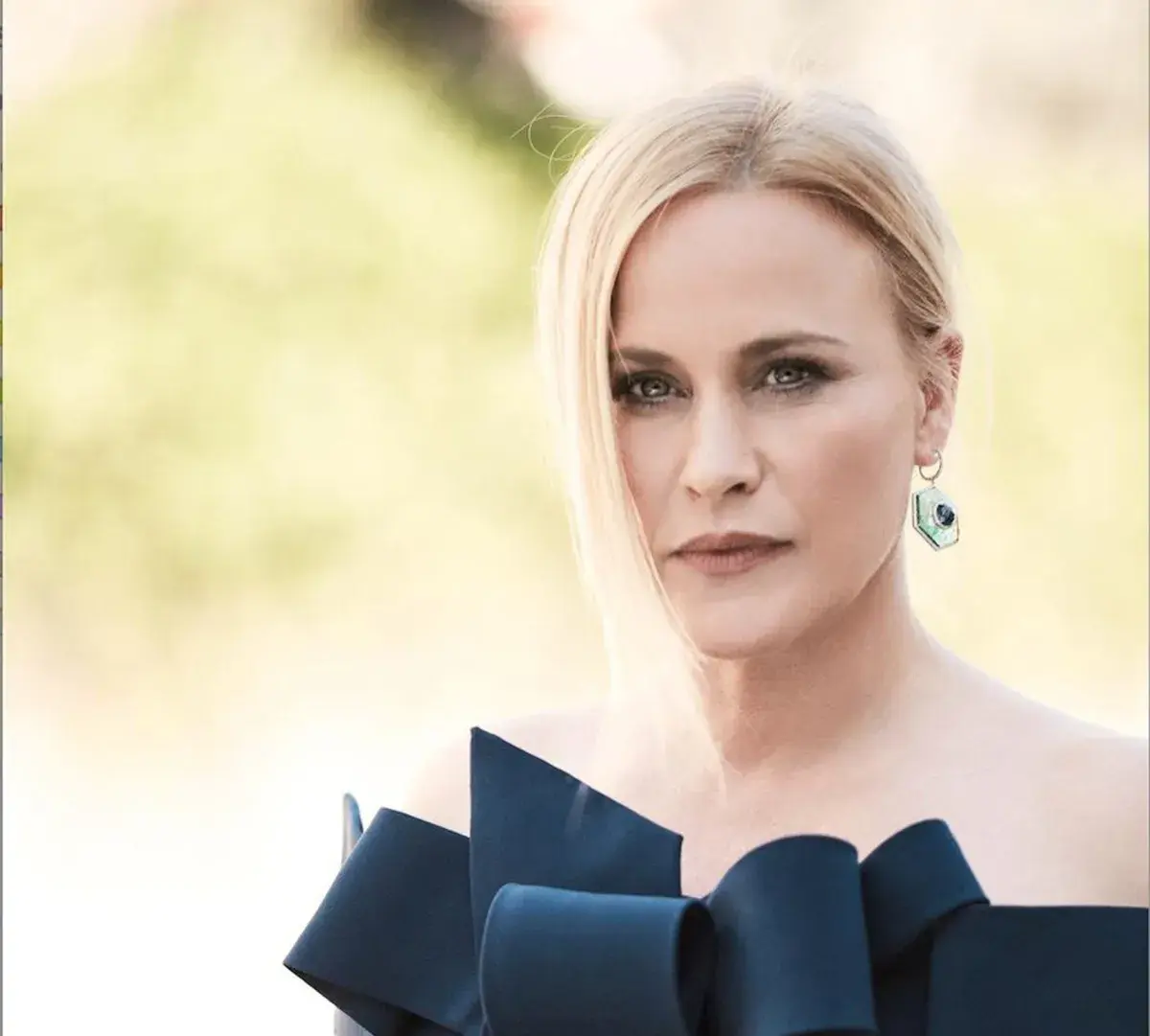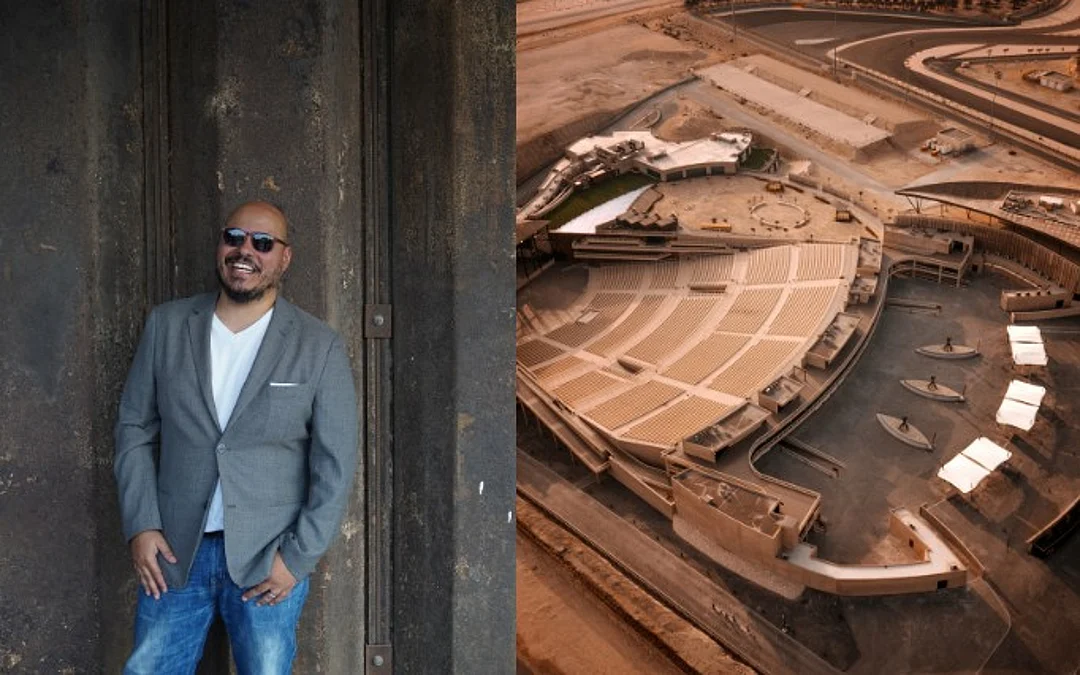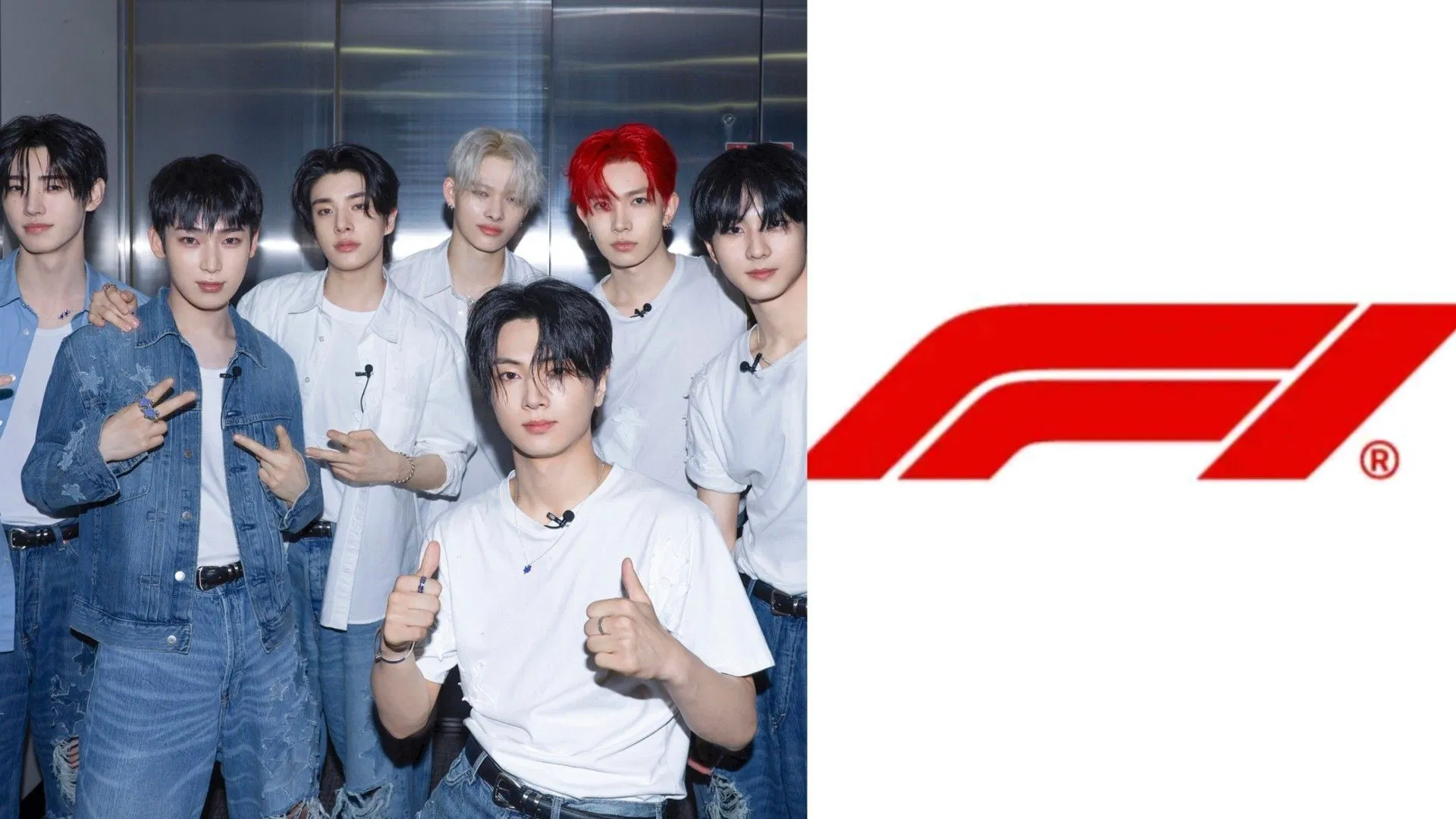Copyright Newsweek

TK PIC “That danger of your own partner being capable of something so scary was so chilling to me.” Even before Patricia Arquette signed on to play Maggie Murdaugh in Hulu’s Murdaugh: Death in the Family, she was already “obsessed” with the infamous case of convicted murderer Alex Murdaugh. “I had been following it and watched documentaries and different shows about it,” she said. “I was just really doing a deep dive, looking at narcissistic personality disorder.” One of the things that fascinated Arquette about Maggie was her slow, tragic realization of her husband’s true nature. “I like that her awakening starts to happen, but even until the last second she still never thinks he’s capable of that.” The Academy Award- and Emmy-winning actress has been busy in recent years with projects like Severance on Apple TV+, but she takes nothing for granted. “I’m just grateful, honestly, at this age, that I’m still able to work and getting really good parts and being able to do some more character work, because when you’re a young girl, you don’t get...chances like that.” SUBSCRIBE TO THE PARTING SHOT WITH H. ALAN SCOTT ON APPLE PODCASTS OR SPOTIFY AND WATCH ON YOUTUBE Editor's Note: This conversation has been edited and condensed for publication. What made you want to say yes to this project? Well, I'd worked with Nick [Antosca] on The Act. So he came to me with this, but I had already been kind of obsessed by this case. I had been following it and watched documentaries and different shows about it and also watched him, you know, on trial, all that news footage that had happened. So, I was just really doing a deep dive looking at Narcissistic Personality Disorder, which, you know, is kind of on that whole spectrum. I'm not a doctor, but boy, it seems like he's got a lot of those kind of qualities. And then looking at how the kind of partners of those people have a pattern, too. That they don't really see it coming and why it's so beguiling and how charming they are and they're okay being pathological liars and the entitlement and all this kind of stuff I thought was really interesting. And when I talked to Nick, they were more interested in the kind of kitchen table family experience, and I thought wow, you know, most women are killed by their intimate partners and how disarming it is to be with somebody that's so manipulative and deceptive. What is so fascinating about your character Maggie, in particular, and her in general, is she's a victim, of course, a horrible victim of this horrible crime, but at the same time, she's also culpable in some of the other situations involving the children. There's this dance of good and evil. What was that like doing that dance? I felt like she had been with him since college and she'd been so normalized to that kind of like, "Oh, he's a good old boy." "Oh, he drank too much." "Okay, I'm sorry." "Boo hoo." "I'm so sorry." "Okay. He's going to get away with it." "Oh we're going to call this judge." Now, I think something comes out of her when her son is in danger that she's never really seen in herself because she is the person to go visit people at the hospital. She is the person to drop off the casserole when somebody loses somebody. But in that moment, her fear for her child brings out something different in her. And she is culpable. And she wants him to use whatever power he has to make that go away. And it's sort of like, even though it's subconscious, it's like, "Wait a minute, all this bullsh** we've been through all these years, making sh** go away, make this go away." Because I think she's terrified for her son's future, doesn't think he'll do great in jail and just how this could ruin his life. Now there's a girl who lost her life, and I think that she feels horrible about that. But also, I think, she feels horrible that she got so normalized to dysfunction that she didn't say, "Our family's out of control. You gotta go to rehab and stay there for a long, long time." Before this accident happened, there was a lot of warning signs, you know, and the truth is when you examine families with drug addiction and out-of-control alcoholism or any of these kinds of issues, sex addiction out of control, whatever it is. You're surviving in it and there's just a lot of wreckage in the road by the time you wake up. How damaging it all really is. Because there's just a lot of trying to manage things, you know, at a certain point. She’s trying to manage his drug addiction, trying to manage all these things. And they say that, like, addiction is a family disease, and I think the addict and the co-dependent both are doing their dance of dysfunction. So I wanted to examine that. We talked a lot about that and like [Alcoholics Anonymous] has this list of dos and don'ts. And I was like, "She's doing all the don'ts.’"They're not even awake at this point. They are not even aware of what's going on. They don't even know where to begin. They're just in denial and all the other things that go along with everything. So many people know this story. Is that intimidating for you to go into a project that people are going to judge it against what they already know about this story? You know, I like to use my mind, obviously, in work, doing this kind of research and thinking about all the layers, but I try really not to use [my] mind when it comes to stepping outside of myself and judging myself or judging others. I think everybody who's done this performance of this story has brought something unique and interesting. I guess other people can compare me or our telling to other tellings, but what was interesting to me about this really was this examination of a dysfunctional marriage and entitlement and that it was written more as this kind of kitchen table approach of "What is this weird dance this family is doing, this couple is doing and what is it like when you start waking up?" To realize that you don't even know who you're with. You normalize so much weird stuff that you don't even know who someone is at all or what they're capable of. They've known each other for so long. It's like they're one in the same. But slowly, particularly with Maggie, you see her starting to see things, and it culminates, obviously, in the horrible tragedy that we all know. But before that, there's this massive fight between you and Jason [Clarke] as Alex. Feeling Maggie's story, embodying Maggie's story, getting to the point where, even in her talking to her sister, it's almost like she doesn't want to hear the things that could potentially save her life. Yeah, no, that's exactly it. I mean, because I was doing a lot of research, not just on these narcissistic or pathological personalities, I was also doing a lot of deep dive research on their partners, because there's certain verifiable patterns, like cognitive dissonance, where they're disconnected from reality because someone's so charming, and then they do something horrible and stab you in the back. And then you go, "Why did you just do that horrible thing?" Then they gaslight you, so then you're backpedaling a little bit, and then they're charming again and great and it's our family and you're the mom and we got to take care of our kids, so then you buy back into this thing and then you get whacked upside the head with some other weird revelations. So, I like that her awakening starts to happen but even until the last second she still never thinks he's capable of that. She's waking up to that he's a mess and that she could have a whole different life without him. And maybe he's just a pathological liar and always gonna be a liar, cheater and addict, but I don't think she ever thinks he is capable of hurting her or her son. So that danger of your own partner being capable of something so scary was so chilling to me and for her and for all these women. You know, the number one killer of women is their intimate partner. So all of these women have experienced that nightmare of not knowing that their partner would actually do that to them. I mean, some of them tried to get away and did know they were capable, and the system didn't protect them, but a lot of them don't know. Another thing that I think is so fascinating about you as an actor is that your mother was a therapist, right? Yeah, she was. Really, I think the way that those conversations happen has really informed my process and actions. My dad was an actor and she was a therapist, so I feel like, you know, both of them really inform my process a lot. When you're doing this research on a person that is as documented as Maggie, do you go back to those conversations with your mother? Well, I think it's, like you said, in that scene with her sister at the house, it's like she has so much shame. Part of this weird dance with this kind of personality disordered people that you're in love with or you have a family with, you either take on their shame, or they put their shame on you and blame you in some kind of weird way. So it's like, even when she's talking to her sister, she has so much shame around him and his behavior, and she's already making excuses for it, like the pills, the other thing. So, sometimes I can go into this, like, patterning from this research and go, "This is where she's at right now, and this is what she's feeling right now." That kind of a groove of the shame and, you know, all this subconscious stuff besides whatever psychological stuff. There's just this societal stuff of like "Oh you were the ideal family." "You guys had it all." "You have the great house and the beach house." "You have a successful husband." "Oh you're living the dream." "You guys have everything perfect, these great kids who love you." And it's like it's all falling apart, and I think she doesn't even know how to get her head around it. With The Act, with Escape From Dannemora, you are becoming the go-to actress for true crime stories at this point. How does that feel? I am interested in true crime. I always have been interested in horror movies, but I'm also interested in Greek tragedies, which are the same thing. It's like Medea or whatever thing it is, there are these stories throughout all different cultures where you have these stories of these kind of horrible, strange things that happen in families or diabolical people, so I think it's interesting. And I'm just grateful honestly at this age that I'm still able to work and getting really good parts and being able to do some more character work, because when you're like a young girl, you don't get parts like that, and you don't get chances like that, you know? So I just feel really grateful. But this material is really interesting to me, and part of what was interesting me about Maggie is she’s kind of a normal person. It's like she's a normal mom. She signed on for the whole wife thing, the mom thing. That's her identity. And so this is so shocking to her. She really never really understands. Well, there is a really wonderful scene when one of the son's girlfriends asked if Maggie ever wanted to work, and she talks about how she had a little shop in town, but that her job has been being a mom, and the way that you did those lines, to me, told me everything about this character. Yeah. And, in a way, she comes from a world where that was possible. I mean, very few people make enough anyway to be a stay-at-home mom on one salary anymore. Back then, she was conditioned already from a way of thinking that that was success. And that's really what she wanted to do most of all. And so to see this whole thing falling apart, her son going down the tubes, what's going to happen to him, her husband, lie after lie and deception after deception, on top of things that predate the show. Your career and the things that you've done have been such a part of, at least my millennial experience, from Lost Highway, True Romance, Boyhood, Medium, to now these projects, Severance. Firstly, how does it feel to be on everybody's favorite show? But also, how does it feel to be a part of so many people's pop culture understanding of entertainment? It feels so cool. I've got to work with the greatest directors in film, you know, John Boorman and Tony Scott and Tim Burton and Martin Scorsese. I mean, just all of them. I’ve felt so lucky. Stephen Freer. Then pivoting into television, I feel like I've really gotten some juicy parts and been able to explore these things. I love Severance, I think it's so creative, and I love everyone I work with. And then like, now I get to work with Jason [Clarke] who blew my mind every day as an actor. It's like, wow, man, I get watch this. And you know, they're gonna edit stuff, cause they always have to edit things. So you're like killing your darling. It's just like, "Oh, should I use this take or that take or this ad-lib or that ad-lib or this thing or that thing," but I get to see it all. I got to see all the stuff he did and it's so cool when you're working with somebody that's just feeding your artistic self like you're getting so excited by what they do. So, I don't know, I just feel super grateful. It's funny, I was out somewhere and I wasn't wearing my white wig and I was just dressed like Severance, whatever. But these kids were like, "Oh my God, you look so much like my favorite actress. She's in this show Severance," so I was like, "Oh, really?" But it was cool, because they had never seen Lost Highway, and they had never seen True Romance. Sometimes people come up to me and it's like, "Me and my mom used to watch Medium, and it was our show, my mom passed away a couple years ago." So to touch into people's lives in these ways, or people will be like, "Look at my tattoo, it's from True Romance." "We got married to that song," or Boyhood, like "We were on the fence about having a kid, and then we saw Boyhood and we decided, let's do it." It's kind of incredible. I'm very lucky. I come from many generations of actors. I'm a fourth generation actor. My daughter's doing her first series and my niece is in the new Dracula movie that's coming out. So I just feel really lucky to be raised by artists and that we can work with other artists and touch people. As a fan of yours, I love that you are the inspiration for my favorite meme on the internet: Meryl Streep pointing at you and cheering you on during your Oscar acceptance speech. First off, where do you keep your Oscar? Second, how does it feel to have a little part of meme history because of that? [Laughs] Well, I keep it in my office, and I'm so grateful for it. That was an incredible moment and I didn't really exactly see it happening at the time, I was so freaked out by everything. I mean she had done a lot of work on the equal rights amendment for many, many years and women's equal pay and all of that. So, you know, I was going through a lot of inner conflicts. I never really, even though I used to fantasize when I was a little girl, like with my shampoo bottle, like "I''d like to thank my mother...." But I never really thought I was gonna win an Oscar. And I didn't really try with that trajectory in my career. Even for the Oscars, I didn't hire my own publicist. I was like, "I don't know how I feel about competition. I don't know." But I was like, look, if I win this thing, I really want it to be a lot of people winning. Like, what if you could take a moment and you could turn it into a win for thousands of people. And it was pretty cool, afterwards, women told me "My boss called me in and I got a raise and I asked why, and they said because we realized we were paying you less." And then like some women were like, "I got $40,000 raised. $40,000." I was like, "Are you happy?" And they were like "No, I'm not happy because I realized I've been missing out on that every year of my career and it's gonna mean less in my retirement, and I'm mad about it. I mean I'm glad I'm getting it now but I'm that that happened." It was such a great moment. For fans of yours, you really felt the energy of, "I want someone like you winning an Oscar.’"And it just was such a great moment. Aw, thanks. Yeah, it was pretty, I mean, even now, it kind of makes me sweat. It's a little scary.



